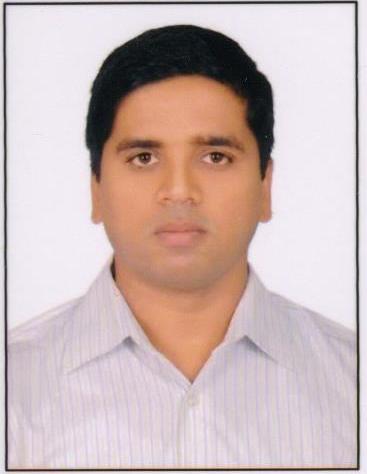Food Microbiology
Course Attendees
Still no participant
Course Reviews
Still no reviews
Course Name : Food Microbiology
Code(Credit) : CUTM 1119(3-1-1)
Course Objectives
• To highlight the microorganisms present in food
• To study in detail the growth of microorganisms and impact of environment
on the growth in food
• To know the food borne diseases and their control
• To know the methods for preservation of food
Learning Outcomes
To impart knowledge on Food microbiology dealing with monitoring, types of microorganisms, preservation of food, etc.
Course Syllabus
Module I: Title (4 hrs): Developments of Food microbiology
History of Microorganisms in Food-developments: Common Food borne Bacteria,Molds.
Practice: Isolation, enumeration and purification of microbes from a given food sample
Module II: Title (4 hrs): Importance of microbes in food
Significance of Microorganisms in foods. Parameters Affecting Microbial Growth: Intrinsic, Extrinsic. Combined Intrinsic and Extrinsic Parameters-lactic antagonism and hurdle concept.
Practice: Staining Techniques (Simple, Gram staining, spore staining )
Module III: Title (4 hrs): Microbes associated with different types of food
Microorganisms in Foods and methods for detection: Fresh meat, Processed meat and Poultry culture.
Practice: Biochemical identification of bacteria
Module IV: Title (4 hrs): Detection of food microbes
Microscopic Sampling Method for detecting microbes, Physical, Chemical methods,Whole animal assays, Immunological methods.
Practice: Fermentation Test
Module V: Title (5 hrs): Food borne diseases
Microbial Food Spoilage and Food borne diseases: Staphylococcal, Ecoli, Salmonellosis, shigellosis, Listerial infections. Mycotoxins, Aflatoxins Alternaria Toxins, Toxigenic Phytoplanktons and viruses.
Practice: Catalase test
Module VI: Title (5 hrs): Food Preservation
Food Preservation & Principles of Quality Control: Chemicals antibiotics, Radiation, Low and high temperature, High-Pressure Processing Pulsed Electric Fields .Aseptic Packaging, Manothermosonication, Microbiological quality standards of food, FDA, HACCP, ISI.
Module VII: Title (4 hrs): Application of Food microbiology
Applications of Food Microbiology: Beneficial Uses of Microorganisms in Food Intestinal Beneficial Bacteria-Concept of Prebiotics and Probiotics, Genetically modified foods. Biosensors in food.
Project: Isolation and identification of food microbes present in street food of Bhubaneswar
Text Books:
1. R.K. Sahoo: Introduction to Microbiology, Year 2020, Kindle publication, Amazon, 1st Edition
2. B. Ray, A. Bhunia: Fundamental food microbiology, CRC press, 5th Edition.
Reference Books:
1. Michael Pelczar JR, E.C.S. Chan, Noel R. Krieg:Microbiology, Mc Graw Hill, 6th Edition.
2. Foster WM, Food Microbiology, CBS publishers, 2018 Edition
Course outline Prepared by; Dr. Ranjan Kumar Sahoo Date:22-05-2020
Source of reference: NSQF
Session Plan
Session 3
Practice: Isolation, enumeration and purification of microbes from a given food sample.
Session Plan
Session 6
Significance of Microorganisms in foods
Session Plan
Session 9
Intrinsic, Extrinsic parameters affecting growth of bacteria
Session Plan
Session 10
Combined Intrinsic and Extrinsic Parameters-lactic antagonism and hurdle concept.
Session Plan
Session 11
Project: Isolation and identification of food microbes present in street foods of Bhubaneswar
Step 1: Detection of food microbes from some street foods
Session Plan
Session 14
Detection of microbes in processed meat
Session Plan
Session 16
Practice: Biochemical identification of food microbes (bacteria, fungus, molds)
Session Plan
Session 17
Microscopic Sampling Method for detecting microbes
Session Plan
Session 18
Physical and Chemical methods for detecting microbes from samples
Session Plan
Session 20
Project: Isolation and identification of food microbes present in street foods of Bhubaneswar
Step 2: Phenotypic characterization of isolated microbes
Session Plan
Session 21
Immunological methods for detecting microbes
Session Plan
Session 25
Salmonellosis, shigellosis, Listerial infections caused due to food spoilage
Session Plan
Session 26
Toxins produced by bacteria, Types of toxins, Mycotoxins, Aflatoxins Alternaria Toxins.
Session Plan
Session 27
Toxigenic Phytoplanktons and viruses.
Session Plan
Session 28
Food Preservation & Principles of Quality Control
Session Plan
Session 29
Preservation of food by chemicals antibiotics, Radiation, Low and high temperature.
Session Plan
Session 31
High-Pressure Processing Pulsed Electric Fields for preservation of foods
Session Plan
Session 32
Aseptic Packaging, Manothermosonication,
Session Plan
Session 33
Project: Isolation and identification of food microbes present in street foods of Bhubaneswar
Step 3: Biochemical characterization of microbes
Session Plan
Session 34
Microbiological quality standards of food, FDA, HACCP, ISI.
Session Plan
Session 36
Project: Isolation and identification of food microbes present in street foods of Bhubaneswar
Step 4: Pure culture and staining of microbes
Session Plan
Session 37
Beneficial Uses of Microorganisms in Food
Session Plan
Session 38
Intestinal beneficial Bacteria-Concept of Prebiotics and probiotics
Prebiotics and Probiotics
Session Plan
Session 39
Project: Isolation and identification of food microbes present in street foods of Bhubaneswar
Step 5: Slant preparation using each strain of microbes
Session Plan
Session 41
Project: Isolation and identification of food microbes present in street foods of Bhubaneswar
Review of project and thesis submission.
Case Studies
Case Studies
Our Main Teachers


